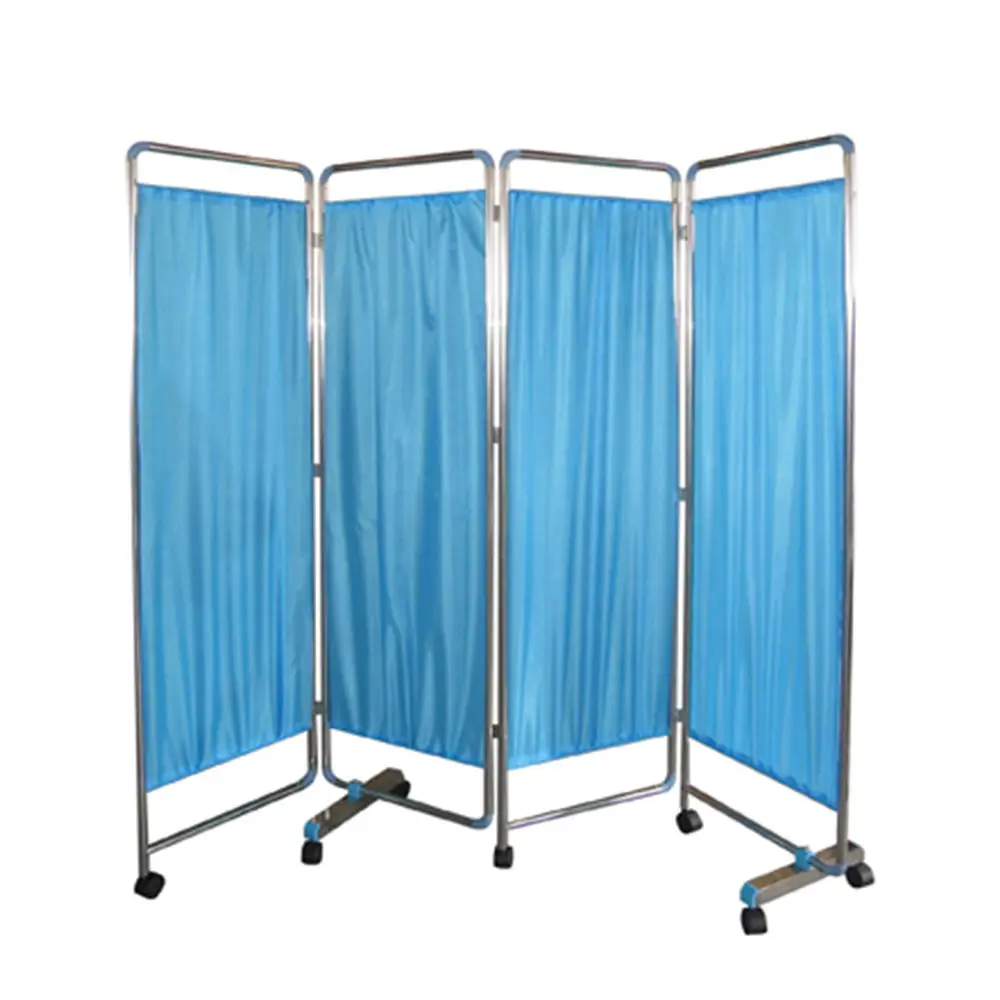عنوان
304 شارع الكاردينال الشمالي
مركز دورتشستر ، ماساتشوستس 02124
ساعات العمل
من الاثنين إلى الجمعة: 7 صباحًا - 7 مساءً
عطلة نهاية الأسبوع: 10 صباحًا - 5 مساءً
عنوان
304 شارع الكاردينال الشمالي
مركز دورتشستر ، ماساتشوستس 02124
ساعات العمل
من الاثنين إلى الجمعة: 7 صباحًا - 7 مساءً
عطلة نهاية الأسبوع: 10 صباحًا - 5 مساءً

إن إحدى الطرق الفعالة لتعزيز الخصوصية هي من خلال استخدام حلول شاشة الخصوصية الطبية.
مرحباً بكم في مدونتي!
قبل أن نتعمق في المحتوى، أود منك الانضمام إليّ على منصات التواصل الاجتماعي الخاصة بي حيث أشارك المزيد من الأفكار وأتفاعل مع المجتمع وأنشر التحديثات. إليك كيفية التواصل معي:
فيسبوك:https://www.facebook.com/profile.php?id=100071234835011
لينكدإن:https://www.linkedin.com/company/74943205/admin/dashboard/
يوتيوب:https://www.youtube.com/@shandongexpertmedicalequip4695
تيك توك:https://www.tiktok.com/@expertmedical
الآن، لنبدأ رحلتنا معًا. أتمنى أن تجد المحتوى هنا مفيدًا وجذابًا وقيمًا.
In any healthcare facility, patient privacy and confidentiality are critical components of quality care. Whether in hospitals, clinics, or long-term care facilities, ensuring that patients have their privacy protected during consultations, treatments, or examinations is essential. One effective way to enhance privacy is through the use of privacy screen medical solutions. These screens not only create private spaces for patients but also help improve the overall functionality of healthcare settings. This guide will help you understand the key factors to consider when choosing the right privacy screen for your medical facility.

A privacy screen medical is a mobile or fixed partition designed to provide patients with visual privacy in various medical settings. These screens are often used in areas where open spaces or shared rooms need to be divided, such as in emergency rooms, wards, and outpatient clinics. The main purpose of privacy screens is to block visibility, ensuring that medical procedures, consultations, and patient interactions can be carried out in a confidential and comfortable environment.
Privacy screens can come in various designs, materials, and functionalities. They range from basic, lightweight foldable screens to more advanced, high-quality screens with sound-absorbing capabilities and antimicrobial properties.
Selecting the right privacy screen medical for your facility requires careful consideration of various factors. These factors will determine how effectively the screen meets the needs of your healthcare environment and ensures patient privacy and comfort.
One of the most important aspects to consider when selecting a privacy screen medical is the material. The material should not only offer the necessary level of privacy but also be durable enough to withstand frequent use in busy medical environments.
The material you choose should be easy to maintain, durable enough for long-term use, and designed to meet the specific demands of your medical facility.
Privacy screen medical solutions come in various designs, from fixed, wall-mounted options to highly portable, wheeled models. The choice between these options depends on the layout of your healthcare facility and the need for mobility.
In healthcare settings, maintaining a high level of hygiene is crucial, especially in patient care areas. For this reason, it’s important to select privacy screen medical solutions that are easy to clean and resistant to contamination. Consider the following features:
Choosing screens that facilitate good hygiene practices will help reduce the risk of infection spread and improve patient safety.
Privacy screens come in various sizes and configurations to suit different medical environments. When choosing a privacy screen medical solution, consider the following:
Having the ability to customize the size and layout of the privacy screens ensures that they can be adapted to different patient needs and room configurations.
While functionality is key, the visual appeal of the privacy screen medical should not be overlooked. Healthcare environments that promote comfort and calmness can positively influence patient outcomes. Consider privacy screens that complement the aesthetic of your facility, with colors or patterns that help create a welcoming and calming atmosphere for patients.
Screens designed with soft, neutral colors or subtle patterns can make the environment feel less clinical and more soothing, reducing patient stress and anxiety. Additionally, ensuring that privacy screens are easy to adjust and comfortable for patients will contribute to a more positive patient experience.
| ميزة | فوائد | الأفضل لـ |
|---|---|---|
| مواد | Durability, ease of cleaning, infection control | High-traffic, high-risk areas like hospitals |
| قابلية التنقل | Flexibility in moving screens between spaces | Emergency rooms, clinics, temporary setups |
| مكافحة العدوى | Antimicrobial coatings, washable materials | Surgical rooms, ICUs, patient wards |
| الحجم والتكوين | Customizable spaces for different settings | Shared rooms, open-plan environments |
| Aesthetic and Comfort | Enhances patient comfort and reduces stress | Patient rooms, waiting areas, counseling spaces |

Implementing privacy screens in healthcare facilities offers multiple benefits that go beyond providing visual privacy for patients. Here are some of the top advantages:
The primary function of a privacy screen medical solution is to provide patients with a sense of privacy during sensitive consultations or procedures. This promotes trust and a sense of security, both of which are critical in healthcare settings.
In settings like hospitals and outpatient clinics, controlling the spread of infections is a constant concern. Privacy screens made from antimicrobial materials or designed for easy cleaning can help reduce the risk of contamination.
Portable privacy screens offer flexibility in space management, allowing healthcare facilities to reconfigure areas based on changing patient needs. This is particularly beneficial in emergency departments, temporary treatment spaces, and during large-scale health events.
Creating private spaces for patients can help them feel more comfortable and relaxed during their treatment or recovery. Privacy screens that are aesthetically pleasing and comfortable to use also contribute to a more welcoming environment.
Choosing the right privacy screen medical solution for your facility is essential for ensuring patient privacy, improving infection control, and enhancing overall patient comfort. By considering factors such as material, portability, hygiene, size, and aesthetics, healthcare providers can select privacy screens that meet the specific needs of their facility. With the right screens in place, healthcare environments become more adaptable, secure, and patient-friendly.
What material is best for a privacy screen medical in a hospital?
Vinyl or plastic privacy screens are typically best for hospitals because they are easy to clean and often have antimicrobial properties, making them ideal for infection control.
Can privacy screens be used in small clinics?
Yes, portable and foldable privacy screens are ideal for small clinics as they can be easily moved and configured to fit limited spaces.
How do privacy screens improve patient comfort?
Privacy screens offer visual and sometimes acoustic separation, helping patients feel secure and relaxed during examinations or treatments. Choosing screens with calming colors can further enhance patient comfort.
Are privacy screens necessary in outpatient facilities?
Yes, privacy screens are essential in outpatient facilities to ensure patient confidentiality during procedures or consultations, especially in shared spaces.
How often should privacy screens be cleaned in healthcare settings?
Privacy screens should be cleaned regularly, ideally after each patient use, particularly in high-traffic areas or where infection control is a priority.